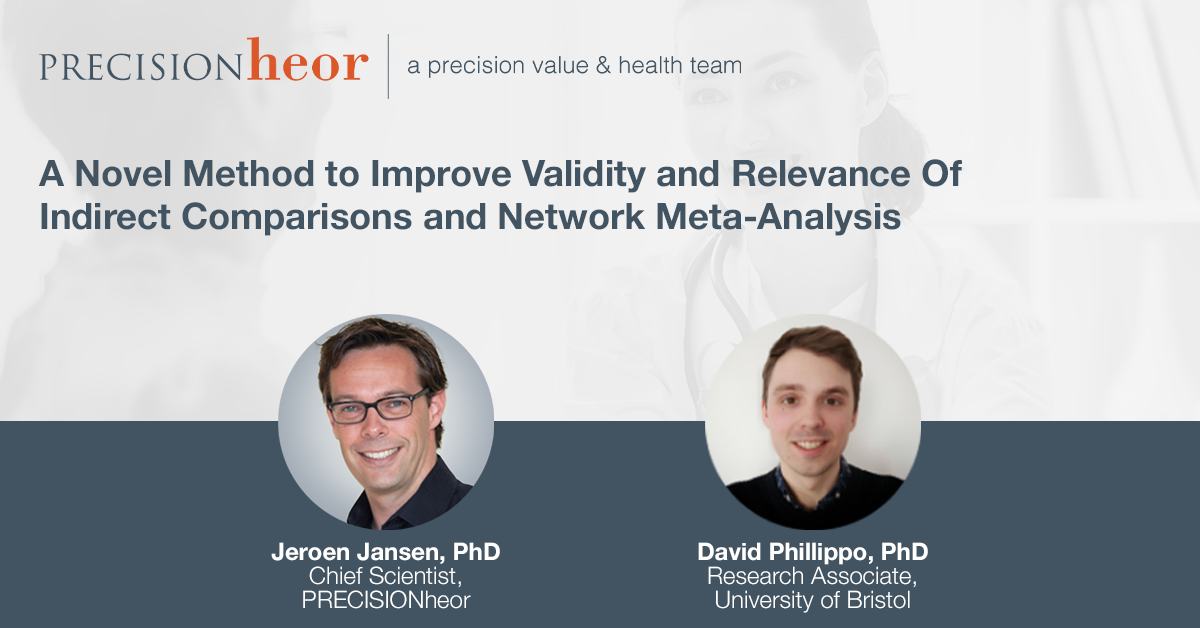Join PRECISIONheor’s Jeroen Jansen, and partner David Phillippo, on Thursday, September 10th, 12:00pm EDT, as they provide an introduction to a novel method, called multilevel network meta-regression (ML-NMR). The method addresses several limitations with current methods, including synthesizing networks of any size and availability of IPD or aggregate studies, and – crucially for decision-making – producing estimates in any target population of interest.
Indirect comparison and network meta-analysis (NMA) of clinical trials are used to estimate relative treatment effects between competing interventions, however these methods may lack validity if there are differences in patient populations between studies. If individual patient data (IPD) are available for all included studies then an IPD-level network meta-regression is the gold standard approach.
However, frequently IPD are only available for one or a subset of studies. Available methods in this case include matching-adjusted indirect comparison (MAIC), simulated treatment comparison (STC), and network meta-regression. However, these methods have known limitations which limit their use in practical evidence scenarios.
This webinar provides an introduction to a novel method, called multilevel network meta-regression (ML-NMR). The method addresses several limitations with current methods, including synthesizing networks of any size and availability of IPD or aggregate studies, and – crucially for decision-making – producing estimates in any target population of interest.
This 1-hour webinar will begin with presentations by Jeroen Jansen and David Phillippo (45 minutes), followed by a 15-minute interactive Q&A session.
After participation, you will:
- Understand the principles of ML-NMR
- Appreciate when ML-NMR has benefits over other indirect comparison methods, such as MAIC and STC
- Recognize the implications for future health technology assessment (HTA) submissions
This webinar will benefit those involved in preparing HTA submissions that utilize indirect comparison methods
—




